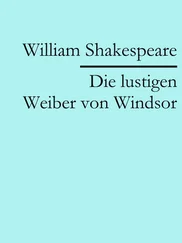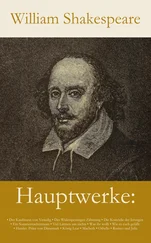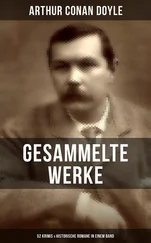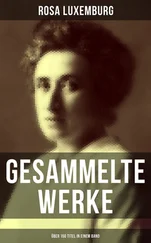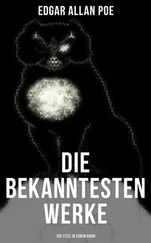I shall th’ effect of this good lesson keep
As watchman to my heart. But, good my brother,
Do not, as some ungracious pastors do,
Show me the steep and thorny way to heaven;
Whilst, like a puff’d and reckless libertine,
Himself the primrose path of dalliance treads
And recks not his own read.
LAER.
O, fear me not.
I stay too long:—but here my father comes.
[Enter Polonius.]
A double blessing is a double grace;
Occasion smiles upon a second leave.
POL.
Yet here, Laertes! aboard, aboard, for shame!
The wind sits in the shoulder of your sail,
And you are stay’d for. There,—my blessing with thee!
[Laying his hand on Laertes’s head.]
And these few precepts in thy memory
Look thou character. Give thy thoughts no tongue,
Nor any unproportion’d thought his act.
Be thou familiar, but by no means vulgar.
Those friends thou hast, and their adoption tried,
Grapple them unto thy soul with hoops of steel;
But do not dull thy palm with entertainment
Of each new-hatch’d, unfledg’d comrade. Beware
Of entrance to a quarrel; but, being in,
Bear’t that the opposed may beware of thee.
Give every man thine ear, but few thy voice:
Take each man’s censure, but reserve thy judgment.
Costly thy habit as thy purse can buy,
But not express’d in fancy; rich, not gaudy:
For the apparel oft proclaims the man;
And they in France of the best rank and station
Are most select and generous chief in that.
Neither a borrower nor a lender be:
For loan oft loses both itself and friend;
And borrowing dulls the edge of husbandry.
This above all,—to thine own self be true;
And it must follow, as the night the day,
Thou canst not then be false to any man.
Farewell: my blessing season this in thee!
LAER.
Most humbly do I take my leave, my lord.
POL.
The time invites you; go, your servants tend.
LAER.
Farewell, Ophelia; and remember well
What I have said to you.
OPH.
‘Tis in my memory lock’d,
And you yourself shall keep the key of it.
LAER.
Farewell.
[Exit.]
POL.
What is’t, Ophelia, he hath said to you?
OPH.
So please you, something touching the Lord Hamlet.
POL.
Marry, well bethought:
‘Tis told me he hath very oft of late
Given private time to you; and you yourself
Have of your audience been most free and bounteous;
If it be so,—as so ‘tis put on me,
And that in way of caution,—I must tell you
You do not understand yourself so clearly
As it behooves my daughter and your honour.
What is between you? give me up the truth.
OPH.
He hath, my lord, of late made many tenders
Of his affection to me.
POL.
Affection! pooh! you speak like a green girl,
Unsifted in such perilous circumstance.
Do you believe his tenders, as you call them?
OPH.
I do not know, my lord, what I should think.
POL.
Marry, I’ll teach you: think yourself a baby;
That you have ta’en these tenders for true pay,
Which are not sterling. Tender yourself more dearly;
Or,—not to crack the wind of the poor phrase,
Wronging it thus,—you’ll tender me a fool.
OPH.
My lord, he hath importun’d me with love
In honourable fashion.
POL.
Ay, fashion you may call it; go to, go to.
OPH.
And hath given countenance to his speech, my lord,
With almost all the holy vows of heaven.
POL.
Ay, springes to catch woodcocks. I do know,
When the blood burns, how prodigal the soul
Lends the tongue vows: these blazes, daughter,
Giving more light than heat,—extinct in both,
Even in their promise, as it is a-making,—
You must not take for fire. From this time
Be something scanter of your maiden presence;
Set your entreatments at a higher rate
Than a command to parley. For Lord Hamlet,
Believe so much in him, that he is young;
And with a larger tether may he walk
Than may be given you: in few, Ophelia,
Do not believe his vows; for they are brokers,—
Not of that dye which their investments show,
But mere implorators of unholy suits,
Breathing like sanctified and pious bawds,
The better to beguile. This is for all,—
I would not, in plain terms, from this time forth
Have you so slander any moment leisure
As to give words or talk with the Lord Hamlet.
Look to’t, I charge you; come your ways.
OPH.
I shall obey, my lord.
[Exeunt.]
German
Table of Contents
The platform.
[Enter Hamlet, Horatio, and Marcellus.]
HAM.
The air bites shrewdly; it is very cold.
HOR.
It is a nipping and an eager air.
HAM.
What hour now?
HOR.
I think it lacks of twelve.
MAR.
No, it is struck.
HOR.
Indeed? I heard it not: then draws near the season
Wherein the spirit held his wont to walk.
[A flourish of trumpets, and ordnance shot off within.]
What does this mean, my lord?
HAM.
The King doth wake tonight and takes his rouse,
Keeps wassail, and the swaggering up-spring reels;
And, as he drains his draughts of Rhenish down,
The kettle-drum and trumpet thus bray out
The triumph of his pledge.
HOR.
Is it a custom?
HAM.
Ay, marry, is’t;
But to my mind,—though I am native here,
And to the manner born,—it is a custom
More honour’d in the breach than the observance.
This heavy-headed revel east and west
Makes us traduc’d and tax’d of other nations:
They clepe us drunkards, and with swinish phrase
Soil our addition; and, indeed, it takes
From our achievements, though perform’d at height,
The pith and marrow of our attribute.
So oft it chances in particular men
That, for some vicious mole of nature in them,
As in their birth,—wherein they are not guilty,
Since nature cannot choose his origin,—
By the o’ergrowth of some complexion,
Oft breaking down the pales and forts of reason;
Or by some habit, that too much o’er-leavens
The form of plausive manners;—that these men,—
Carrying, I say, the stamp of one defect,
Being nature’s livery, or fortune’s star,—
Their virtues else,—be they as pure as grace,
As infinite as man may undergo,—
Shall in the general censure take corruption
From that particular fault: the dram of eale
Doth all the noble substance often doubt
To his own scandal.
HOR.
Look, my lord, it comes!
[Enter Ghost.]
HAM.
Angels and ministers of grace defend us!—
Be thou a spirit of health or goblin damn’d,
Bring with thee airs from heaven or blasts from hell,
Be thy intents wicked or charitable,
Thou com’st in such a questionable shape
That I will speak to thee: I’ll call thee Hamlet,
King, father, royal Dane; O, answer me!
Let me not burst in ignorance; but tell
Why thy canoniz’d bones, hearsed in death,
Have burst their cerements; why the sepulchre,
Wherein we saw thee quietly in-urn’d,
Hath op’d his ponderous and marble jaws
To cast thee up again! What may this mean,
That thou, dead corse, again in complete steel,
Revisit’st thus the glimpses of the moon,
Making night hideous, and we fools of nature
So horridly to shake our disposition
With thoughts beyond the reaches of our souls?
Say, why is this? wherefore? what should we do?
Читать дальше

